Вы здесь
Ashgabat city.
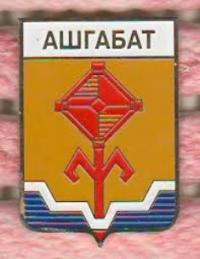



Excursions on Ashgabad.
"The essence of the word is similar to the Russian - «grad», German - «burg» and so on. It is used as an ending in the names of some towns. As regards the meaning of the root «ashkg» there are also several possibilities. It links both with Astarta (Ashghoret, Ishghar) - goddess of fertility and love in ancient eastern mythology, and with the Parphian King Arshak I, whose name is mentioned as Ashk I in the Armenian original sources, while the dynasty, founded by him is called «ashkanids»
Weekend excursion in Ashgabad.
Ashgabat - capital of Turkmenistan, was situated between desert of Karakum and mountains of Kopetdag 114 years ago. It was created as a military fortress of the king’s troops near the village of Ashgabat.
Archeologists find here the ruins of the settlement of the III c. “Ashgabat” is translated like “ a beloved city”. It is green almost whole year round: leaves appear on trees in March and fall only in November.
Now, the city is still growing and lots of new building are under construction. Ashgabat city was founded on the site of the Turkmen settlement in 1881 as a frontier fortification and the center of the Trans-Caspian region, ruled by the military administration.
Consisted of a set of mud houses with orchards, situated on the straight streets designed. Has long been a one-story, because after several earthquakes banned build higher. The city's population at the beginning of the century was small, so in 1901 it amounted to 36 500 people, of whom 11 200 Persians, 10 700 Russian, 14 600 Armenians, Caucasian Tatars and other nationalities.
Turkmens have lived outside the city in their encampments. In 1948, in Ashgabat was a catastrophic earthquake in the epicentral region of 9 - 10, one of the largest in the world in the XX century.
The city was completely destroyed. According to different estimates of that tragic day have died from half to two thirds of the population of the city (from 60 to 110 thousand people, because the information on the number of people are not accurate).
Ashkhabad, the capital of independent neutral Turkmenistan, has borne this name since 1882. According to archaeological data, settlements belonging to the Great Silk Road have existed on the territory of the present city since at least the end of the first millennium B.C.
The chronological distance between them and the present city is so great, that we are unable to speak about any townbuilding continuity. That connection traces back to the beginning of XIX century, when there was a Turkmen urban settlement here, called Ashkhabad.
One of the most widespread explanations of this name is «a city of love». The Turkmen word «yshk» comes from the Arabian «eshkh» and means «love», «flame», «sympathy». «Abad» comes from the «farcy» language and is translated as «comfortable», «populated».
The essence of the word is similar to the Russian - «grad», German - «burg» and so on. It is used as an ending in the names of some towns. As regards the meaning of the root «ashkg» there are also several possibilities.
It links both with Astarta (Ashghoret, Ishghar) - goddess of fertility and love in ancient eastern mythology, and with the Parphian King Arshak I, whose name is mentioned as Ashk I in the Armenian original sources, while the dynasty, founded by him is called «ashkanids».
Finaling, there is an absolutely fantastic version, according to which Ashkhabad is located on the site of Asgarda, celestial settlement of the gods - as featured in the Scandinavian myths «Inglingsaga» and «Junior Edda» by Snorri Sturlusson.
But in Turkmen folklore the name of the city is linked with the meaning «a city of love». According to a legend, when Nisa was under the rule of Nuramed, and Annau was under the rule of Pirakhmed, Allah put a veto on love.
But against the interdiction, the daughter and the son of these governors fell in love. Realizing the threat to their safety, they hid themselves in a desert, until at last, parched with thirst, they came to amountain range, found a lonely spring, and ran to slake their thirst, only to find it had run dry.
The lovers went further, where they met a mountain river, but no sooner had they fallen to drink than it evaporated. The young man then dug to reach underground springs, which made Allah angry again, and He sent Azrail, the angel - divider, to them.
However, God's envoy failed to carry out the sentence: having looked at the girl, he fell in love and forgot his mission. And then a spring of the same crystalline purity as love itself gushed out of the ground.
They decided to stay here, near the won- derful spring which saved their lives; and after hearing their history other people moved here, too. Love is not only an integral part of the name of the city, but also a feeling familiar to all generations of the citizens of Ashkhabad, who for the last hundred years, against wars and the elements, have had to revive the city from the ashes several times.
Today the citizens of Ashkhabad have become the witnesses and participants of a new, unprecedented growth in the capital of Turkmenistan caused by radical changes in the life of the country, which begin after state independence on October 27,1991.
The last seven years have seen the accelerated development of the city, completely changing its former appearance. New, refined and imposing buildings are springing up, and broad roads have been laid out at a speedy pace.
The present Ashkhabad distinguishes itself with its own style, harmoniously combining the best traditions of its own national architecture and the achievements of modern town-building. We can to say with confidence that the new star of the East is rising in the skies of the twenty first century.
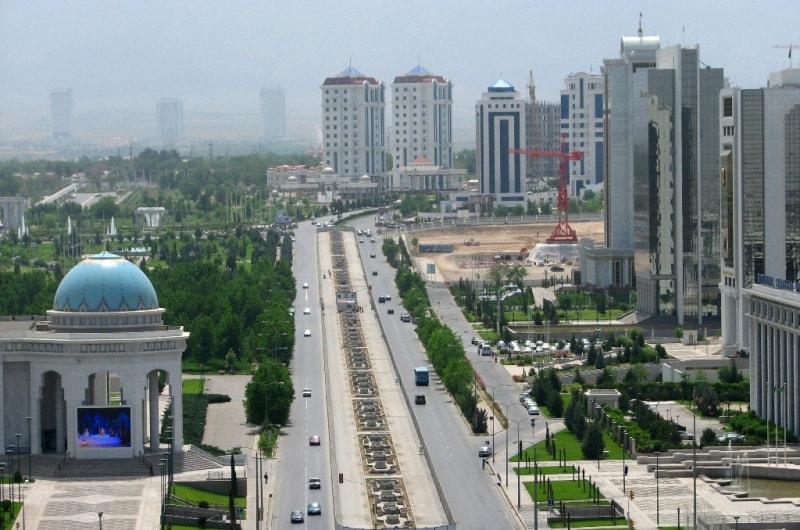
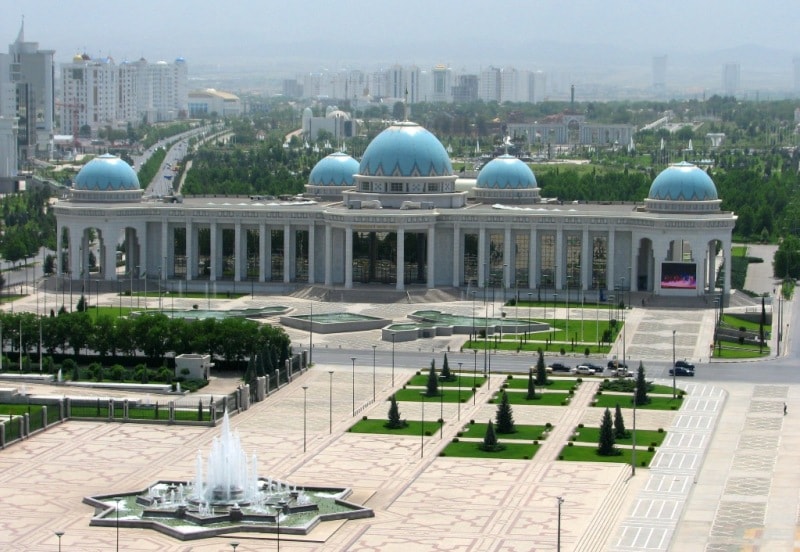
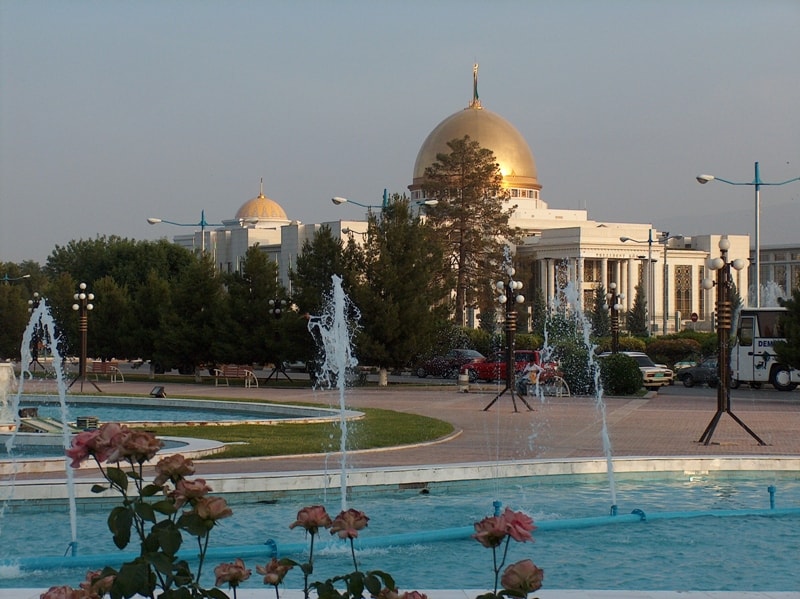
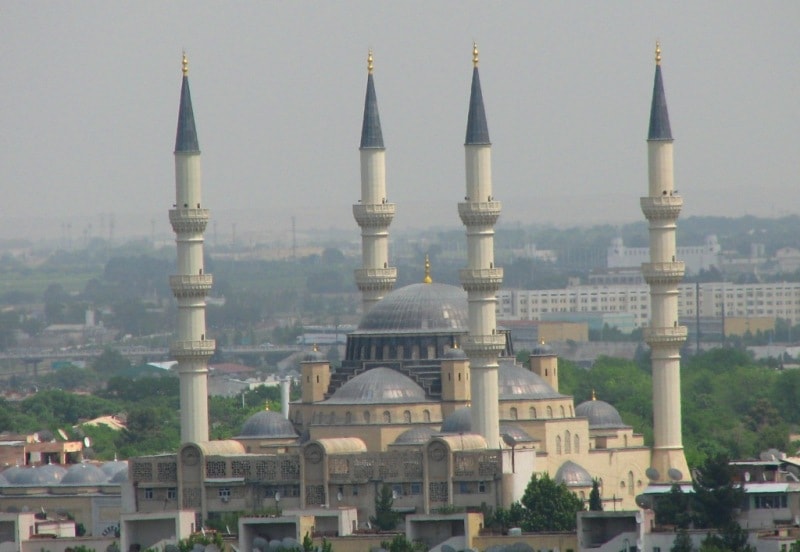
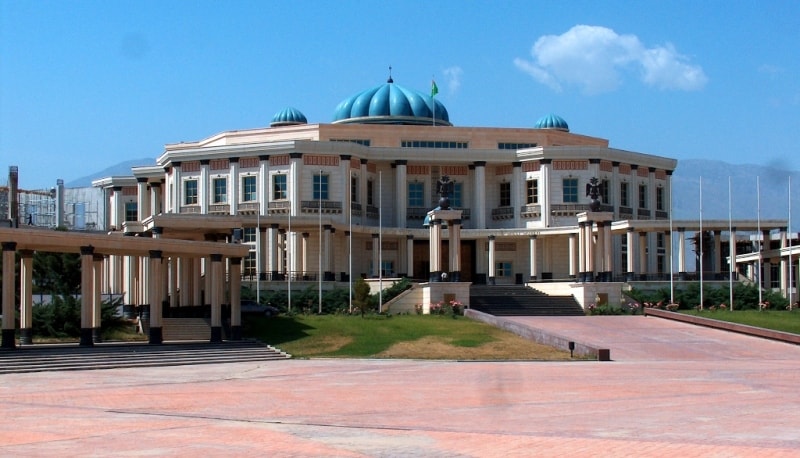
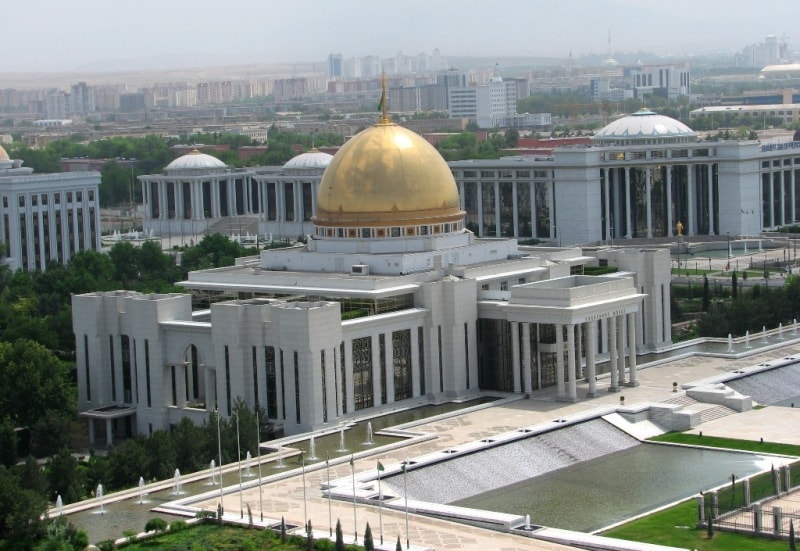
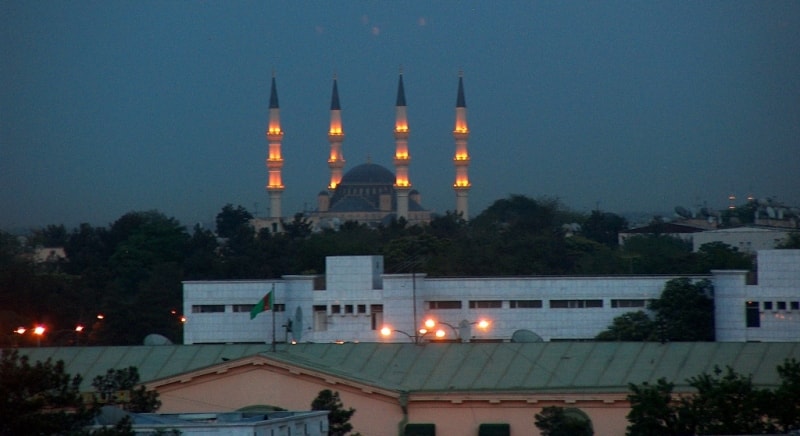
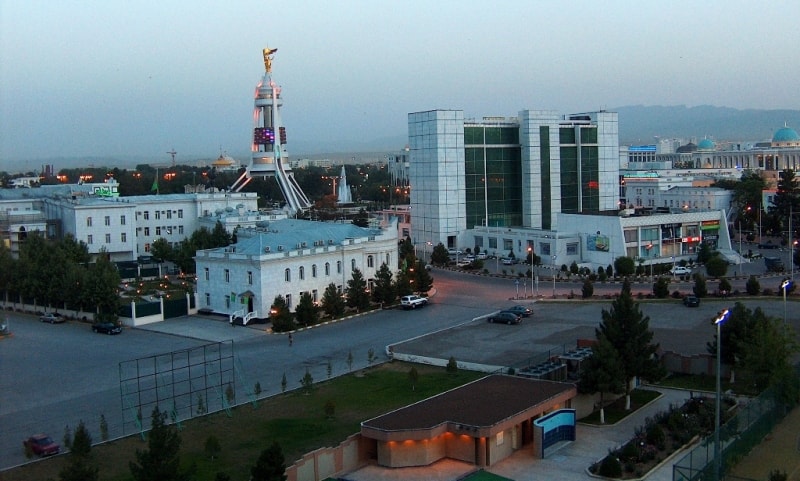
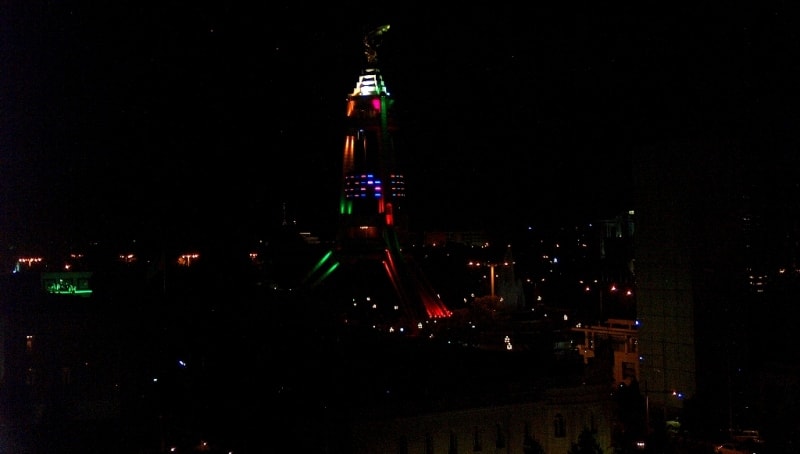
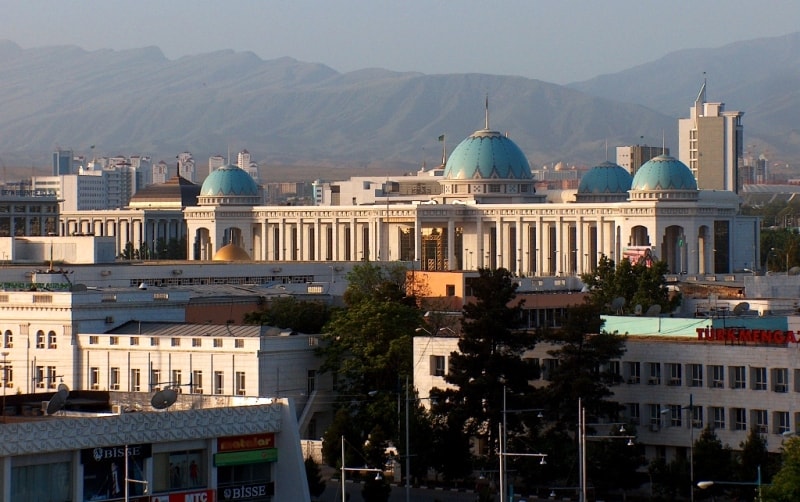
Authority:
On materials of an information department of the State committee of Turkmenistan on tourism and sports.
Alexander Petrov
photos.







